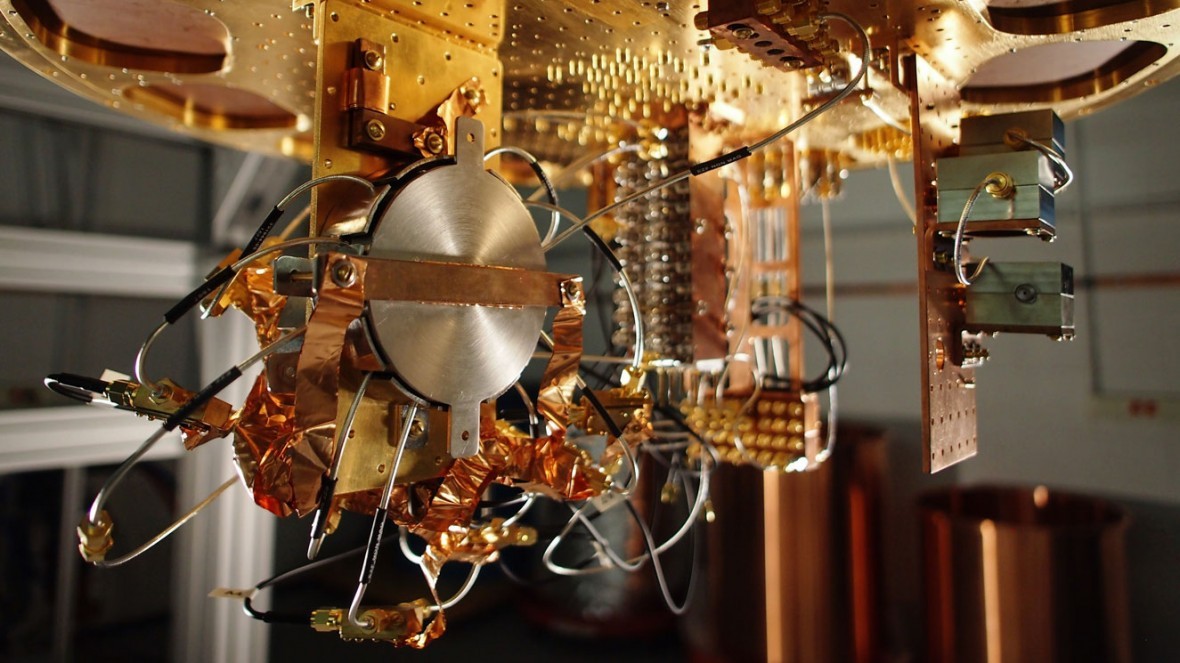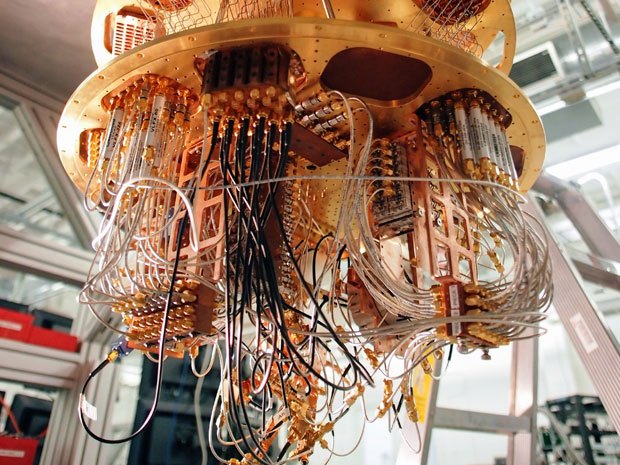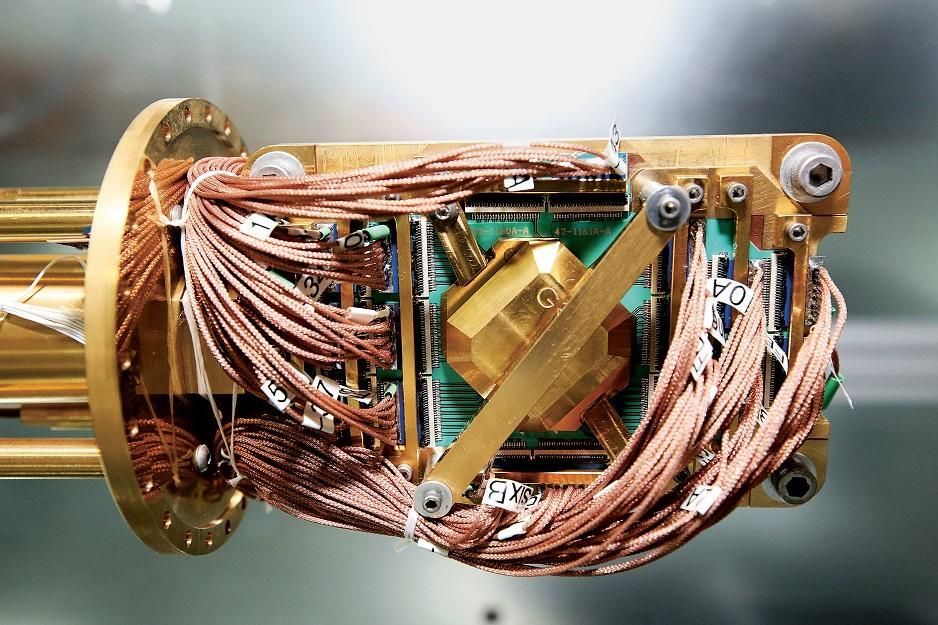By the end of this year, Google plans to show a 49-qubit quantum computer

Quantum computers are devices in which phenomena such as quantum superposition and quantum entanglement are used to transmit and process data. Experts say that with a certain number of qubits of a processor, a quantum computer will surpass standard computers and even supercomputers. True, such computers are not suitable for all types of tasks, but, for example, in cryptography they can be used very productively. At the moment , IBM, Google and some other companies are working on creating quantum computers.
Their interest in this type of device is understandable - after all, quantum computers, apart from cryptography, can be used to work with any multiparticle systems. And this means that a quantum computer is perfect for solving problems of nuclear physicists, geneticists, power engineers, meteorologists, representatives of the IT sphere and, of course, the military. Recently it became known that Google already plans to launch a 49-qubit quantum computer by the end of this year.
It is planned to increase the number of qubits using the new system, which will include an array of 7 * 7 qubits. If this project can be implemented, Google will have one of the most powerful quantum computers at the moment, if not the most powerful. Representatives of the company themselves hope, sooner or later, to achieve "quantum superiority." No, Google employees do not plan to walk with their heads held high along the streets of cities after creating a super-productive quantum computer (although why not?). Quantum superiority is a state when no traditional computer, even the most powerful, can compete with a quantum one in power.
“For many years we have been talking about how powerful a quantum processor can be, because the laws of quantum physics come into effect here, and now we want to demonstrate this,” said John Martinis, a representative of the Google research team.

In principle, 49 qubits are good, but still, even such a powerful quantum computer is still only the beginning of a quantum future. By the way, experts believe that the massive emergence of quantum computers means the end of cryptography in the form in which we know and understand it. A sufficiently powerful quantum system (here we are talking about a processor consisting of 100 million qubits) can pick up a 2000-bit key in just a day. But, of course, the creation of quantum computers of such power is still very far away - now qubits are still measured in dozens, not even hundreds. And above it was about 100 million. This is quite a distant future.
On Geektimes information about the D-Wave quantum computer was published. But in fact, this is not a full-fledged quantum computer, but only the installation of quantum annealing . According to Greg Tallant, head of the Center for Quantum Computing at Lockheed Martin, such a system can solve problems based on the Ising model, it is suitable for use in a limited number of projects.
A number of specialists are engaged in emulation of quantum computers on modern, super productive traditional systems. Classic computers can actually work by emulating the work of quantum systems. But there are limitations. For example, in April, the supercomputer of the National Laboratory. Lawrence Berkeley (born Ernest Orlando Lawrence Berkeley National Laboratory, Berkeley Lab, LBNL) was able to work as a quantum computer with 45 qubits. The power of this system was about 29 petaflops. Scientists believe that if we compare ordinary systems with quantum ones, the former will not be able to go beyond 49 qubits.

Google previously tested quantum computers based on arrays of 9 * 1 qubits and 2 * 3 qubits. Now the task is to scale it all up to create really powerful quantum systems. At the same time, developers managed to achieve a normal course of operation of a quantum computer under the condition of almost complete absence of system error control. The creators of the system promise that even for a system of 50 qubits, error correction will not be needed, or it will be minimal. True, so far these are only plans that may not come true.
Google can not yet clarify what useful tasks a 50-qubit quantum computer will perform. But the fact that the new type of system will be useful for the whole world, the developers of quantum computers have no doubt.
All Articles